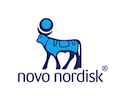Dow Jones Sustainability Index: Novo Nordisk Receives Top Environmental and Social Score
Novo Nordisk remains in the top of the pharmaceutical sector in Sustainability Asset Management 2012 rating.

(3BL Media) September 13, 2012 – Today, the results of Sustainability Asset Management’s (SAM) rating for the Dow Jones Sustainability Index were released with Novo Nordisk achieving a score of 86 out of 100, the second highest in the pharmaceutical sector. The average pharmaceutical sector score is 48.
Novo Nordisk received the best pharmaceutical sector score in two out of the three dimensions in SAM’s analysis, namely the overall environmental dimension and social dimension.
Additionally, the company achieved the best score for the pharmaceutical sector in seven categories – Codes of Conduct/Compliance/Corruption&Bribery, Environmental Policy/Management System, Climate Strategy, Social Reporting, Addressing Cost Burden, Bioethics, and Stakeholder Engagement.
“We are proud of our performance in these seven categories, all of which are important to our key stakeholders and reflect our Triple Bottom Line business principle,” says Susanne Stormer, vice president, Corporate Sustainability, Novo Nordisk.
Despite the company’s strong performance in the 2012 rating, scores declined in the Environmental Reporting and Occupational Health and Safety categories.
”We take this drop seriously and will reach out to SAM to better understand the scores and work to close the gap,” says Susanne Stormer.
Read Novo Nordisk's full DJSI score
About the Dow Jones Sustainability Index
The Dow Jones Sustainability Index were launched in 1999. The index tracks the stock performance of the world's leading companies in terms of economic, environmental and social criteria. The index serves as benchmarks for investors who integrate sustainability considerations into their portfolios.
Scores and ratings are based on the Swiss organisation Sustainability Asset Management’s 107 questions. The questionnaire is divided into 22 categories within the three overall dimensions of ‘economic’, ‘social’ and ‘environmental’, which are weighted 44, 46 and 10% respectively. The questionnaire is modified each year depending on how material trends and developments affect the industry or business in general.

